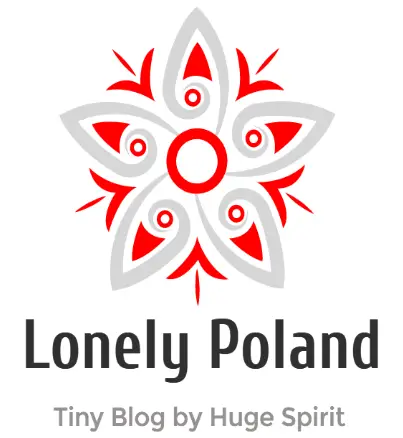I believe it’s worth to say that we are steadily raising our voices about animal welfare, and the threat of climate change isn’t only for environmentalists anymore. The care for our environment has struck a chord in public opinion and is shaping trends of today. So, why is upholding animal rights still a touchy subject amid ecological struggles?
Decoding Animal Rights in Poland
Let me say, animal rights are all about respecting the lives of other creatures and understanding our responsibility for their wellbeing. I think one of the most critical rights is the freedom from suffering. It means animals shouldn’t be seen as mere objects or subjected to undue cruelty.
Many passionate animal rights advocates argue that animals are sentient beings. They believe animals should not be slaughtered for food, used for cruel medical experiments, or exploited for entertainment.

On the other hand, there are animal welfare advocates who present a less extreme viewpoint. I can tell you, they argue that using animals isn’t inherently wrong, as long as it doesn’t cause unnecessary suffering.
↳ PRO TIP: Do you like traveling? Then before you buy any ticket or book an attraction, check if it's available in this worldwide Viator Database. You may save a lot of money and time. No need to thank me :)
Those opposing animal rights often argue that animals can’t understand social contracts or make moral choices. They believe animals owe nothing to humans, hence, they should have no rights. However, a quick glance at the Universal Declaration of Animal Rights adopted by UNESCO will present a strong counterargument.
- I am sure you will also like this article: A Guide to the Most Dangerous Animals Found in Poland
Allow me to explain. According to the declaration, humans, being representatives of our species, can’t claim the right to destroy or harm animals disgracefully. It’s our responsibility to use our knowledge for everyone’s benefit. After all, consciousness brings accountability. And let me tell you, any act that involves thoughtless killing of an animal isn’t merely the murder of a living organism, it’s a crime against life itself.
Deciphering Animal Rights Regulations in Poland
The main law governing the legal status of animals in Poland is the Act of 21 August 1997 on the Protection of Animal Rights. It says an animal is a living being capable of suffering and should be treated humanely.
I am convinced that every animal has the right to receive proper care, protection, and have its individual needs resspected. The Act strictly prohibits deliberate infliction of pain on animals, overexploitation, making ill animals work, and causing unnecessary stress or suffering.
What you need to understand here is this law defines the animals as capable of suffering, underlining the necessity for humane treatment. It also reinforces that animals have a right to adequate care, protection, and respect.

Any violation of these, according to the law, is considered unacceptable. So, if you’re in Poland, being aware of these regulations is key to ensuring animals are treated with the respect they deserve.
- I think you may also like this article: Adopting a Dog in Poland: What to Expect and How to Prepare
Understanding the Law and Its Limitations
The Act mentioned earlier does a great job of laying down the legal groundwork for the protection of animal rights, and it even sets penalties for violations. But let me tell you, it still has its shortcomings, especially when it comes to being exploited by the livestock industry.
Primarily, it lacks specific rules for farm animals and those bred for slaughter. It also fails to establish a dedicated institution that would ensure its provisions are followed. Instead, it leaves this critical task to government bodies that also protect the economic interests of farmers and breeders, quite contrary to animal welfare and consumer health interests.
Unraveling Animal Rights in Poland
Under the current Polish law, animals don’t really have rights per se, because they’re not considered as legal entities. These rights are only enjoyed by humans. However, animals do get legal protection, which means that certain human actions against animals are deemed illegal and punishable.
In the Animal Protection Act of 1997, there’s a powerful statement. Article 1, point 1 reads:
An animal, as a living being, capable of suffering, is not a thing. Man owes him respect, protection and care.
I am convinced that recognizing an animal as more than an object is a significant legal provision. But here’s the twist. The very next part of the Act tells us that in matters not regulated by the Act, the provisions concerning things shall apply to animals.
This part mostly deals with ownership issues, like figuring out who a particular animal belongs to. But comparing an animal to an object raises valid concerns. I think it’s worth saying that many people and organizations, working tirelessly to improve the fate of animals globally, hope that animals will be seen as legal entities with their personal rights in the future.
Evaluating the State of Animal Protection in Poland
In Poland, there are many laws aimed at protecting wild, farm, and companion animals. If you compare with other countries, you’ll find Polish regulations are relatively strict and the penalties severe.
However, so far, courts have not imposed penalties to their fullest extent. In most cases, offenders get suspended prison sentences, which don’t deter them from repeating such harmful behaviors.

It is indeed necessary to enforce harsher penalties, including absolute deprivation of liberty, long-term restriction of freedom, and a ban on owning animals or working in certain professions.
Amendments to the Constitution of the Republic of Poland would certainly help, making it obligatory to protect all animals under the highest legal act.
Progress Through Amendments
The 2018 amendment to the animal protection legislation boosted the penalties for unjustified killing and mistreatment of animals. The need for these changes came from cases where people who cruelly treated animals often received punishments that didn’t align with public perception of justice, often being harsh yet suspended.
I believe the new regulations, with a range of solutions to extend the state’s power in animal protection, have considerably improved the animals’ situation. These measures have to a certain degree addressed the concerns of animal rights organizations reported over many years.
Spotting Animal Abuse in Poland
Animal abuse is clearly defined in the law. Scaring and irritating animals, as well as keeping them in unfit conditions, are all forms of abuse. Imagine being in an unhygienic room where you can’t move naturally, doesn’t sound fun, right?
Same goes for animals. They mustn’t be exposed to harmful weather conditions either. As an owner, it’s your duty to provide animals with adequate shelter. This means a room with access to daylight, unrestricted movement, and enough food and water.
On top of that, the law firmly says no to abandoning animals. You can’t just toss aside a pet that has become a burden. According to Polish law, such behavior equals animal abuse.
Releasing a domesticated animal into the wild, or keeping it in poor conditions, can lead you to jail for up to 3 years. If you act with particular cruelty, that punishment can go up to 5 years.
The Why and How of Animal Cruelty
You might wonder, why do we hear so many cases of animal cruelty? The answer is simple yet disheartening. Animal rights regulations in Poland are quite broad, and penalties and public awareness are still too low.
Sometimes, there’s a silent agreement to overlook animal welfare, especially when interests clash. Industriaes are still aiming to meet human needs at the lowest cost, sacrificing not only animal rights but also human values.
I am convinced that as long as society accepts inhumane treatment of living beings, the situation won’t change.
However, in these challenging conditions, striving for positive change by opposing harmful practices and shaping public opinion is crucial. Organizations like Open Cages are working hard to create a world free of suffering.
They raise their voices against the horrifying suffering of farmed chickens and oppose cage farming. Every small step brings us closer to success, and you can be part of it.
A Glimpse Into the Past – Animal Rights in Poland Post-1989
To truly grasp the current situation, we need to step back almost a century to 1928. That’s when the first act protecting all species of animals was passed. This significant move came only eight years after Poland regained its independence following the Prussian, Russian, and Austrian partitions, a period remembered by Poles as 123 years of foreign domination. This legal regulation was introduced by then-President of the Republic of Poland, Ignacy Mościcki.
The regulation made animal abuse punishable, listing nine specific cases of inhumane treatment, many of which are still part of today’s animal rights regulations. Sanctions for these offenses ranged from fines to arrest or imprisonment, depending on the severity of the act, then decided by local courts, now by common ones.
Here’s an interesting tidbit: this Regulation safeguarded not only vertebrate animals but also insects against inhumane treatment. Yes, you heard it right, even insects were protected under this law.
The Timeline of Polish Animal Rights Laws
In 1934, Poland passed its first nature protection law. But then, World War II and the Soviet influence put a stop to any progress in animal protection. Things remained stagnant until 1989, when Poland said goodbye to the communist system.
During the socialist era, vets were mainly found in state clinics dealing with farm animals. Meanwhile, the dog and cat population, with no sterilization in place, was shooting up. The government finally noticed this issue in 1961.
The Minister of Public Utilities came up with guidelines for controlling the problem of stray dogs and cats in urban areas.
Stray Animal Control and the Birth of Animal Shelters
Here’s what the government planned: People would drop off stray or lost animals at city cleaning facilities or Society for the Protection of Animals branches. If the animal wasn’t reclaimed by the previous owner or didn’t find a new home within 14 days, the law said it was to be put to sleep. These places were called „animal shelters”, but today we’d sadly call them „waiting rooms of death”.
Now you’re probably thinking, „what about animals in smaller towns?” Well, it’s safe to assume that the rural population took matters into their own hands. They likely dealt with the overpopulation of homeless animals in the simplest ways – that’s right, using tools used to kill farm or game animals.
World Declaration of Animal Rights – A Game Changer
The World Declaration of Animal Rights, created in 1977 in Geneva, drastically changed how we view our „smaller brothers”. The United Nations, which Poland has been a part of since its inception in 1945, recognized it through UNESCO. This Declaration was undoubtedly a turning point in the legal treatment of animals globally.
The content of the Declaration goes something like this:
- Every animal has rights, and ignoring these laws leads us against nature and animals.
- Recognizing the rights of other animal species to exist is the foundation for the coexistence of all living beings.
- Respect for animals is connected with respect among humans.
- Therefore, we should teach people from a young age to observe, understand, respect, and love animals.
So if you want to contribute to a better world for animals, start by acknowledging and respecting their rights. And remember, this respect reflects how we treat each other as humans.
References:
- https://www.wetgiw.gov.pl/nadzor-weterynaryjny/ochrona-zwierzat
- https://isap.sejm.gov.pl/isap.nsf/download.xsp/WDU19971110724/U/D19970724Lj.pdf
- https://ewspa.edu.pl/ochrona-praw-zwierzat/



